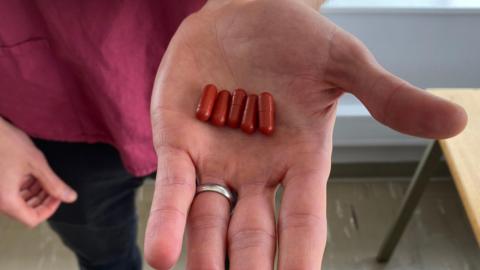Doctors in the UK are exploring a novel method to combat dangerous superbug infections using so-called “poo pills” capsules containing freeze-dried faeces from healthy donors. These pills are packed with beneficial gut bacteria and aim to restore balance to the intestinal microbiome, which is often disrupted in individuals infected with drug-resistant bacteria.
The bowels are considered the body’s largest reservoir of antibiotic-resistant organisms. When these superbugs escape the gut, they can lead to severe infections elsewhere, such as in the urinary tract or bloodstream. The idea behind the poo pill therapy is to flush out the harmful bacteria and replace them with a healthier, more diverse mix of microbes, thereby reducing the risk of further infections.
While the concept may sound unusual, it builds upon an already approved medical treatment faecal microbiota transplantation (FMT). FMT is commonly used to treat recurrent infections caused by Clostridium difficile, a bacterium that can cause debilitating diarrhoea. In these cases, transplanting stool from a healthy donor helps reintroduce healthy bacteria into the gut, often with successful results.
Recent trials have suggested that this approach may also be effective in tackling other superbugs. A group of patients who had suffered from drug-resistant infections in the previous six months were given poo pills, created from carefully screened donor stool samples. The samples were tested to ensure safety, had any undigested food removed, and were then freeze-dried into a fine powder. This powder was encapsulated in a pill designed to withstand the acidic environment of the stomach and dissolve only once it reached the intestines.
In the initial trial involving 41 patients at a London hospital, participants showed a willingness to take the pills, and donor bacteria were still present in their bowels a month later. This indicates the pills can effectively colonize the gut. Researchers observed “promising signals” that the therapy may reduce or even eliminate harmful bacteria, as the beneficial microbes compete with superbugs for space and nutrients on the gut lining.
Importantly, after treatment, the patients’ gut microbiomes became more diverse — a positive indicator of gut health. A richer bacterial ecosystem may offer “colonisation resistance,” making it harder for harmful microbes to take hold in the future. This could serve both as a treatment and as a preventive measure for people at increased risk of infection.
This approach is particularly relevant for patients undergoing treatments that weaken the immune system, such as chemotherapy or organ transplants. These individuals are more vulnerable to complications from drug-resistant infections, and an effective microbiome therapy could significantly reduce their risks.
There is growing scientific recognition of the crucial role the microbiome plays in overall health. Not long ago, bacteria and viruses were largely seen as threats to be eradicated. Now, they are understood to be essential to human biology. From infancy, the microbes we encounter can shape our immune system and even our long-term health.
Research has already linked the microbiome to conditions such as Crohn’s disease, cancer, and mental health disorders. With over 450 microbiome-based medicines currently in development, the hope is that some will eventually replace or supplement traditional antibiotics. This shift could represent a major advance in the fight against antimicrobial resistance, offering safer and more sustainable treatments for infections.

